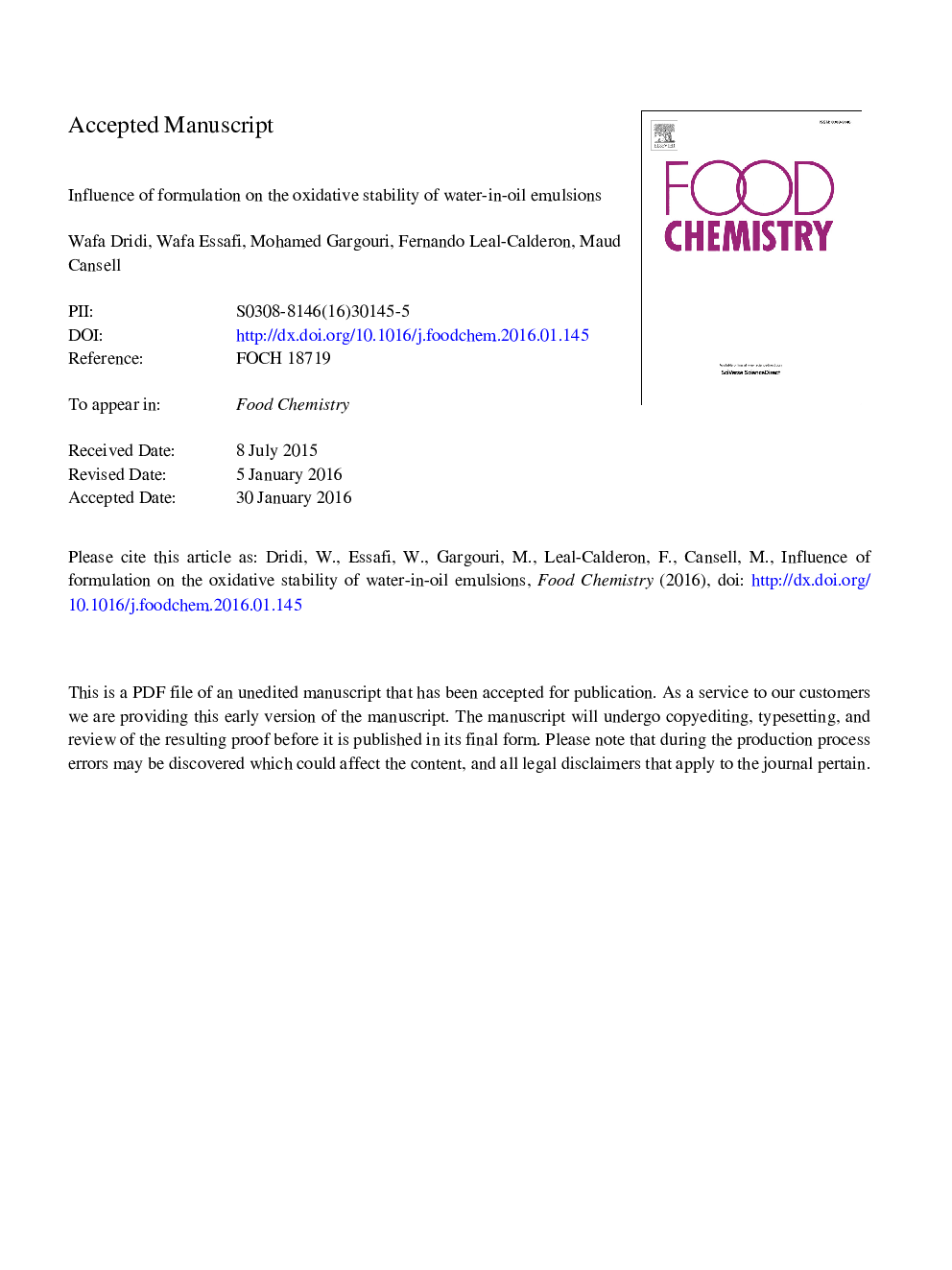| Article ID | Journal | Published Year | Pages | File Type |
|---|---|---|---|---|
| 7589146 | Food Chemistry | 2016 | 31 Pages |
Abstract
The oxidation of water-in-oil (W/O) emulsions was investigated, emphasizing the impact of compositional parameters. The emulsions had approximately the same average droplet size and did not show any physical destabilization throughout the study. In the absence of pro-oxidant ions in the aqueous phase, lipid oxidation of the W/O emulsions was moderate at 60 °C and was in the same range as that measured for the neat oils. Oxidation was significantly promoted by iron encapsulation in the aqueous phase, even at 25 °C. However, iron chelation reduced the oxidation rate. Emulsions based on triglycerides rich in polyunsaturated fatty acids were more prone to oxidation, whether the aqueous phase encapsulated iron or not. The emulsions were stabilized by high- and low-molecular weight surfactants. Increased relative fractions of high molecular weight components reduced the oxidation rate when iron was present.
Related Topics
Physical Sciences and Engineering
Chemistry
Analytical Chemistry
Authors
Wafa Dridi, Wafa Essafi, Mohamed Gargouri, Fernando Leal-Calderon, Maud Cansell,
